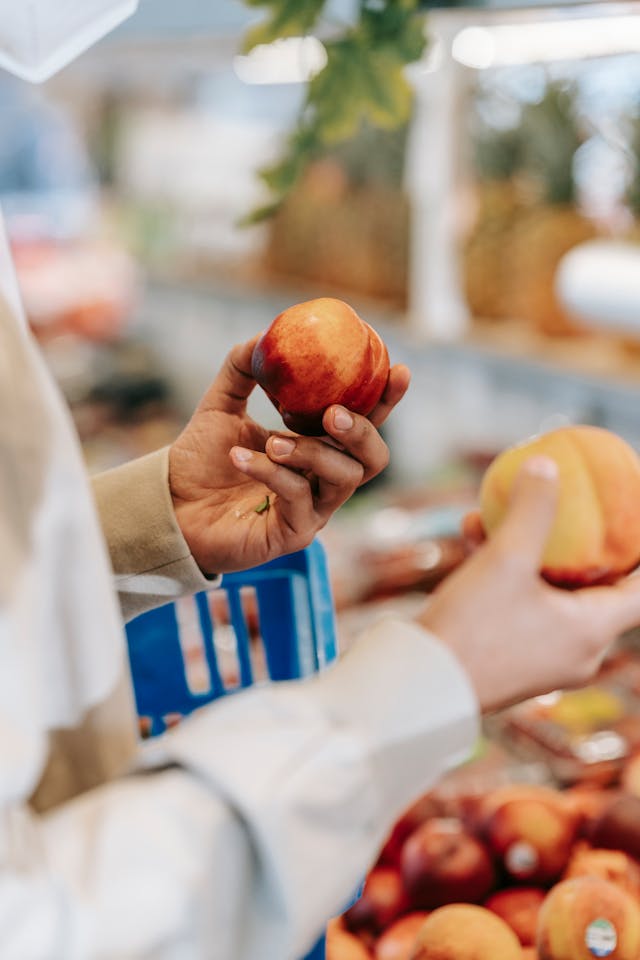Nigeria State of the Nation
According to NielsenIQ Retail measurement data for 2023, inflationary pressure was the main driver of FMCG markets in Nigeria. The highest value increase came from skincare, baby care, personal care, home care, and beverages (alcoholic and non-alcoholic). Let’s take a deeper dive into quarterly analysis for FMCG by looking at the market trends.
In Q1, total FMCG grew in value by 16%, which was driven mainly by home care, personal care, skin care, and ambient food, which led to a volume drop of 4.2%. Household consumption spending during this period dropped due to the cash crunch effect.
In the second quarter of the year, FMCG grew by 15%. Personal care grew the most during this period, and volumes dropped the most this quarter, by 4.9% in the year. Moving on to the third quarter, FMCG value growth further went up by 19%, driven by price increases, and volumes also went down slightly, driven by baby care, personal care, beverages, home care, and dairy.
The last quarter of 2023 saw FMCG value growth going up by 22% while volumes dropped marginally by 0.9%, the slowest in the year. The rising cost continues to halt volume growth, causing categories to decline, while we see that consumers are rationalizing their purchases and frequency by spending more for less.
“Moving into 2024, manufacturers and retailers must continue to innovate their products,” comments Faith Wanderi, NIQ Managing Director for East & West Africa. “They must explore better value-for-money options or offerings that can still meet the needs of the already-stretched and challenged consumer, who has little or no extra income to spend.”
Key takeaways
- The rising cost of living continues to halt volume growth, causing categories to decline and businesses to even shut down.
- Consumers are rationalizing their purchases by spending more for less.
Kenya State of the Nation

A Quick Look
- The FMCG Market value declined 4.3% in 2023 compared to 2022. Units (Volume Growth) saw a similar decline of 2.1% in the same period, driven by price inflation.
- Q4 2023 saw significant value growth (14.6%) in comparison to the same period in 2022, largely driven by Food categories.
- Traditional Trade still dominates the retail landscape with a contribution of 58.2% in 2023, while Modern Trade contributed 41.8% in the same year.
The Kenyan FMCG Landscape
According to NIQ Data Measurement for 2023, inflationary pressure was the main driver of Kenya’s FMCG Markets. Categories that saw the biggest margin of value increase were diapers, toilet soap, non-bulk water, energy drinks and nectars categories. The consumer basket is still largely taken up by basic commodities with the top ten categories of Flour, Energy Drinks, Cooking Oil, Liquid Milk-UHT, Fermented Milk, Toilet Soap, Diapers, Liquid Fresh Milk, Toilet Soap, Fem- Care, Breakfast Cereals and Skin Care.
Let’s take a deep dive into the month-on-month analysis by deconstructing the FMCG market trend in terms of demand and price level. In Q1, the 9.2% inflation rate was largely driven by fuel costs. During this time, to protect their household budgets, consumers were purchasing smaller volumes of products to minimize their expenses. They also found alternatives to their favorite products in Private Label brands. Consequently, Private Label grew significantly and contributed the most to the Ambient food and Dairy categories.
In the second half of the year, there was a fair de-escalation in inflationary pressures (7.3%), with a corresponding boost in value growth at 1.9% but a decline in volume growth at 2.9%. Private Label continued to grow, driven by the same categories as in Q1, as consumers continued to seek better value for their money.
Moving into the third quarter of 2023, the value sales of FMCG goods grew by 12.2%, and volume sales grew to 9.9%. The Liquid Milk category saw double-digit growth of 12.5%, mainly due to inflation that continued even into the final quarter of the year that saw an 18.1 % growth of FMCG goods value. The categories that continued to grow in value as with all the other quarters were Homecare, Dairy, Personal care, Ambient Food and Beverages. Segments such as Fermented Milk, Liquid Fresh Milk, and Diapers saw the biggest growth. It is important to note that the Pasta category saw the highest growth, and non-bulk water under Private Label grew at 0.78%.
“Moving into 2024, businesses in Kenya should re-evaluate their positioning and use innovative practices to appeal to consumers,” observes Faith Wanderi, NIQ Managing Director for East & West Africa. “The Private Label industry clearly has understood this and continues to innovate beyond basic value concepts. Assortment Optimization and Innovative Initiatives such as Omni-channel Marketing, E-Commerce, and leveraging interactive packaging are key attributes moving forward for all retailers.”
Key takeaways
- Private Label Manufacturers have an upper hand in the FMCG market since they have understood how to innovate beyond basic concepts
- Consumers are embracing other shopping alternatives such as omni-channel shopping, wholesale shopping to survive the inflationary pressure that keeps looming
- Beverage, Ambient Food, Dairy Categories value growth are consistently dominating the FMCG Market
Source: NielsenIQ Data Measurement for 2023.
